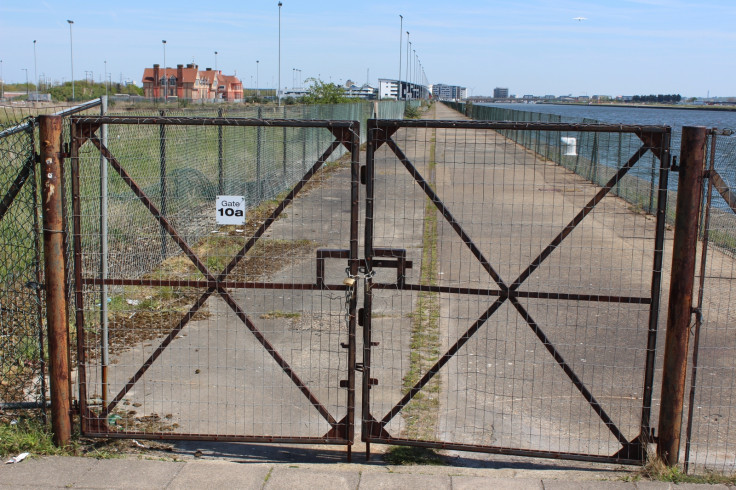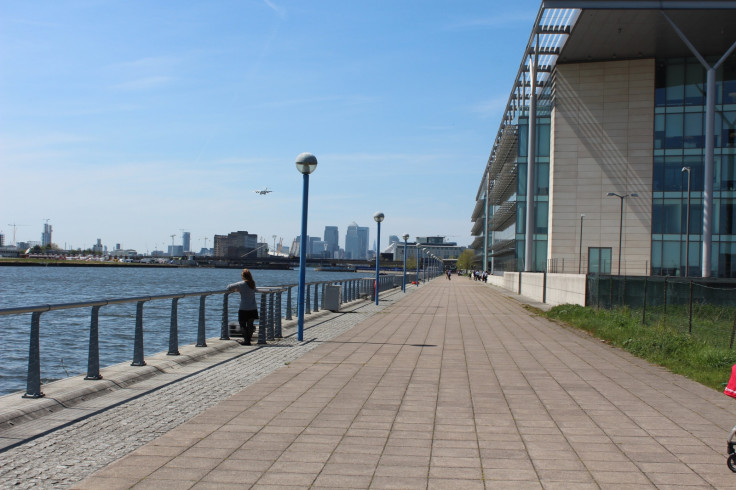Selling the silverware: How Newham Council and George Osborne sold London's historic dock to the Chinese
The Royal Albert Dock in East London was first built in 1880 as the maritime demands of the British Empire required increasing infrastructure for the blossoming trade with the colonies. But when Britain's naval supremacy died away and slipped into a post-imperial decline, the dock and its surroundings fell into disrepair.
More than a hundred years later, the docks have become a microcosm for Britain's changing development model. From where industry and trade once flourished, the site is now home to London's only Enterprise Zone, a model being rolled out by George Osborne across the country to incentivise investment in the UK.
"The Royal Docks lies within the stretch of land that runs from Stratford down the River Lea to the Thames, an 'arc of opportunity' that has been identified as having £22bn of development potential," said a joint statement released by the Mayor of London Boris Johnson and Mayor of Newham Robin Wales in 2010.
The Royal Docks Enterprise Zone is a $1bn (£692m) Chinese-funded project that includes redevelopment of the whole area. At part of it, the Royal Albert Docks will be the Asian Business Port that will provide a home to eastern companies to set up shop, and a host of incentives will be offered.
In 2013, Chinese developer Advanced Business Park (ABP) acquired sole private ownership of the 35-acre estate through a Development Agreement with the Greater London Authority. It was joined by China Minsheng Investment Corp, China's largest private investment firm.

"After the project is completed, it will be the international platform and foundation for Chinese companies and capital to enter the European market," Minsheng president Li Huaizhen said after signing the deal with the UK finance ministry.
On approach to the Royal Albert Dock today is the flashy glass-walled Dockside Building, which will soon house Newham Council offices as well as Swatch Group and ABP itself. Close by is the site of the proposed business port. It sits behind imposing metal fences now and pedestrians or tourists are instructed that "unauthorised persons will be prosecuted".
Inside the Dockside Building, a model of what the port will eventually look like has pride of place in the lobby as people shuffle past. We are not allowed inside, and are instructed to put our cameras away when we start trying to take photos outside. Critics estimate that this restriction on democratic rights will only get worse when the project is finally up and running.
There has also been criticism of Newham Council and the London Enterprise Secretariat, both of which have been accused of failing to engage local people and Londoners in the process of the Royal Docks Enterprise Zone. We tried repeatedly to contact the council and the secretariat but received no replies.
This privatisation of public land is a hot-button issue at the moment, as increasing amounts of public space is sold off to the highest corporate bidder, making London's denizens, according to some, feel like trespassers in their own city.
This new species of urban space – christened "pops" or "privately-owned public spaces" – has blossomed in recent years. Examples include the Olympic Park in Stratford and the space surrounding City Hall, the home of the London mayor, which is owned by More London – an offshore investment company that rents the land to the Mayor of London.

These spaces are still public places, in the sense they are open to the public, but are now governed by the rules of the private corporations that own them, rather than laws governing communal public urban spaces. This has led to rules that restrict public gatherings, speeches and photography (as we found at the Royal Albert Dock).
But from the Take Back the City, a new party that stood in the recent London Mayoral elections, to the "mass trespass" protests taking place on land that is designated private and restricted in our capital, a fightback is beginning.
"The Royal Docks enterprise zone is the wrong model for London," Sian Berry, Green Party candidate in the recent London mayoral elections, told the IBTimesUK.
"We're a hugely successful city with many advantages for companies looking to locate here. We shouldn't be giving public land, tax breaks and other generous inducements to large corporations. The mayor can steward international investment for the common good, instead of flogging our city off to the highest bidder. I'd like to see the new mayor renegotiate the deal to ensure fair taxes, a decent amount of social housing and genuinely public space managed by the local authority."
Out on the dockside, people sit on benches and eat their lunch as planes fly into City Airport, which sits across the water. The airport, the most central London has to offer, is a controversial project in itself. In his first few days in the post the new mayor, Sadiq Khan, announced he was going to unblock the expansion of City Airport.
London is increasingly resembling a public-private partnership, and it seems that the latter is rapidly supplanting the former.
"This is another huge mistake," said Sian Berry. I'd like to see the mayor bringing international investment in to close the airport down. With Crossrail coming it will be easy to reach Heathrow, so the airport really isn't necessary. You could then redevelop the whole Royal Docks area to provide tens of thousands of homes and a huge growth in commercial space. It could be a thriving hub for small and large businesses, and a massive new residential quarter to help meet the pressing need for new homes."
The enterprise zone model – leasing out public space to private companies who operate under favourable investment regimes – has, many argue, been behind the boom of Chinese economy since the 1980s, and has taken over the developing world in the same period.

Outside of the UK, these zones are known as Special Economic Zones (SEZs). There are now thousands of them across mainland China, with 40 million people living in them. ABP has developed a business and residential project in southwestern Beijing, along with three other office park projects in other Chinese cities.
"The Royal Docks need to be further established as a preferred destination for business and commerce," says the promotional literature from the mayor's office. "The Royal Docks are competing for inward investment with locations across London and beyond. Marketing a range of incentives to attract investors and secure occupiers is essential for achieving the delivery and funding of key developments."
In the port, the incentives read exactly like they do for SEZs in East Asia. It includes business rate relief for five years from the date of arrival and enhanced capital allowances, which enables businesses to claim tax relief on investments in certain energy saving equipment against the taxable profits of the period of investment.
As well as this, many of the regulatory agencies will be combined into a "one-stop shop" or combined authority, including Local Planning Authority/ Greater London Authority/ Transport for London/ developers in one place, as well as "super-fast" broadband. It's a model that can be seen from Cambodia to India.
The pre-eminent expert on SEZs is Patrick Neveling, a lecturer in social science at Utrecht University. He said: "SEZs are commonly regulated differently than a nation's normal territory, to the extent that they may have their own police forces with considerable sovereignty over a fenced-in or open-access territory.
"This has to do with the fact that nations commonly set up new authorities – think of something like the 'United Kingdom Special Economic Zones Authority' with a fancy acronym, UKSEZA, if you wish. Such new authorities are then often parasitical agencies where the state holds a symbolic single share or so and a private-public-partnership board runs the show."
London is increasingly resembling a public-private partnership, and it seems that the latter is rapidly supplanting the former.
Support for this article was provided by the Pulitzer Center on Crisis Reporting
© Copyright IBTimes 2025. All rights reserved.






















